Fitness trackers accuracy is essential, especially when you want to get in shape and improve your physical appearance.
Table of Contents
ToggleThere is no shame in needing some help in your journey of getting fitter and trying to lose weight, and fitness trackers are a perfect companion for this adventure.
However, trackers are more accurate than you could imagine.
Of course, the accuracy will vary depending on which metric you want to measure and what device you are able to afford.
Let’s take a closer look at fitness tracker accuracy and how accurately they can track several different metrics.
Start Building Your Dream Body Today
Ready to elevate your fitness game without falling into the trap of dull, repetitive routines that just don’t deliver? Imagine sculpting your ideal physique and boosting your health, all while still enjoying life’s pleasures, like those irresistible weekend getaways and your aunt’s legendary cheesecake. With our online fitness and nutrition coaching service, you don’t have to compromise. Dive into a personalized fitness journey that blends perfectly with your lifestyle, not against it. Book your completely free discovery consultation today, and take the first step towards a transformation that doesn’t require giving up the joys of life.

“I was skeptical about online fitness coaching, but Functional Body Savage completely changed my perspective. Vanja and Radomir’s personalized approach and attention to detail have helped me achieve goals I never thought possible. I’m stronger, more confident, and grateful for their guidance.”
Emily Thompson, San Francisco, CA
Learn More About Our Online Coaching ServiceQuick Summary
- Fitness trackers are more accurate than you could imagine.
- Putting a fitness tracker correctly and having a proper fit is crucial for accurate readings.
- Wearing your fitness tracker on your non-dominant wrist helps minimize incorrect information from daily activities.
Fitness Trackers Accuracy: What Do Studies Show?
Studies show that fitness trackers are more accurate than people would assume. Depending on the device you get, you can get more or less accurate results.
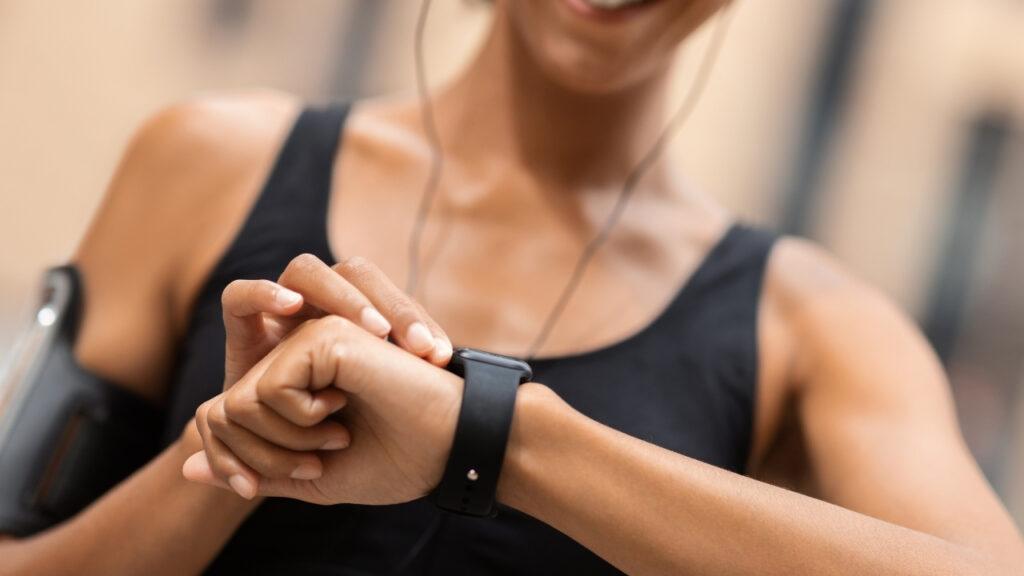
One of the metrics that gives you the most accurate results is probably the step count, and there are even studies that support it [1], [2].
How Accurate Are Fitness Trackers?
Fitness trackers are fairly accurate. Some of the advanced features, like calories burned, energy exposure, and sleep tracking, might be less precise since they are more complex and not all bodies are the same.
A study named “Accuracy and Acceptability of Wrist-Wearable Activity-Tracking Devices: Systematic Review of the Literature” shows that the Fitbit Charge and Fitbit Charge HR were consistently shown to have good accuracy for step counts and the Apple Watch for measuring heart rate [3].
For those seeking a specialized fitness tracker for stroller walks, our detailed buyer’s guide offers recommendations.
Are Fitness Trackers More Accurate When Placed on the Ankle?
Yes, fitness trackers are more accurate when placed on the ankle. Ankle placement is great for minimizing discrepancies generated by arm movements.

One study from Europe PMC titled “Stepping Up Activity Poststroke: Ankle-Positioned Accelerometer Can Accurately Record Steps During Slow Walking” demonstrated that accelerometers, commonly included in ankle fitness trackers, exhibited an error margin of 10% or less when placed at the ankle across walking speeds ranging from 0.4 to 0.9 meters per second [4].
I wrote an unbiased review of the best ankle fitness trackers on the market, and if you want the most precise tracking results from your tracker, you should definitely read it.
How Accurate Are Fitness Trackers for Counting Calories Burned?
Fitness trackers for counting calories still need some improvement. At this moment, using them as a reliable source of data is not the best choice.
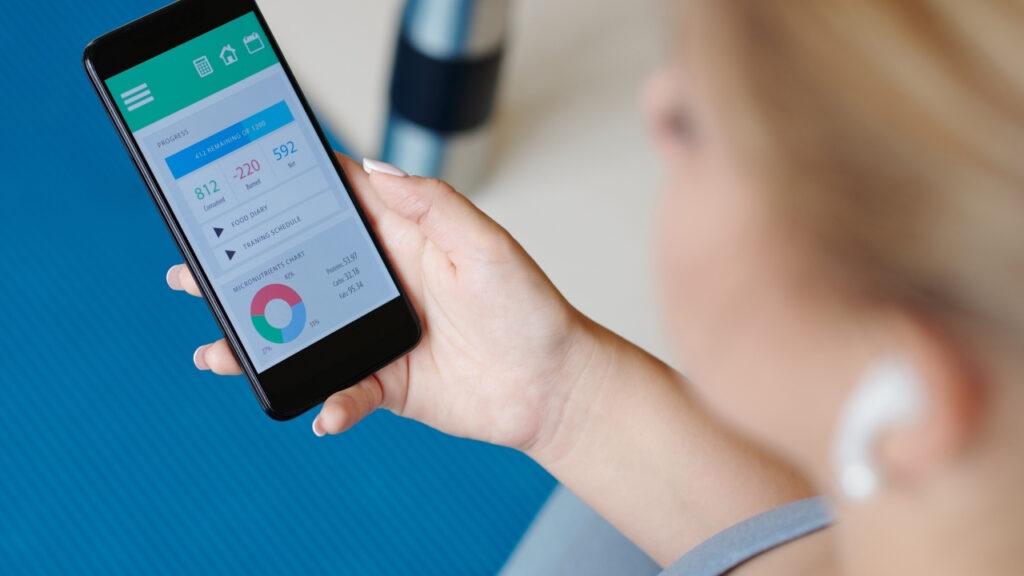
One study from Esprints titled “How well do activity monitors estimate energy expenditure? A systematic review and meta-analysis of the validity of current technologies” concluded that energy expenditure estimates from wrist and arm-worn devices vary in precision depending on the type of activity [5].
A study named “Validity of Wrist-Worn Activity Trackers for Estimating VO2max and Energy Expenditure,” accessible on the PubMed Central website, concludes that currently, available activity trackers are most likely not accurate enough to be used for sports nor in health care and rehabilitation [6].
Another study on the Journal of Medical Internet Research website shows that, at this present moment, mainstream devices are able to measure heart rate reliably, step count, distance, and sleep duration, which can be used as effective health evaluation indicators, but the measurement accuracy of energy expenditure is still inadequate [7].
How Accurate Are Fitness Trackers for Counting Steps?
Fitness trackers for counting steps are highly accurate. Also, fitness trackers typically provide reasonably accurate step counts for common activities like running or walking.
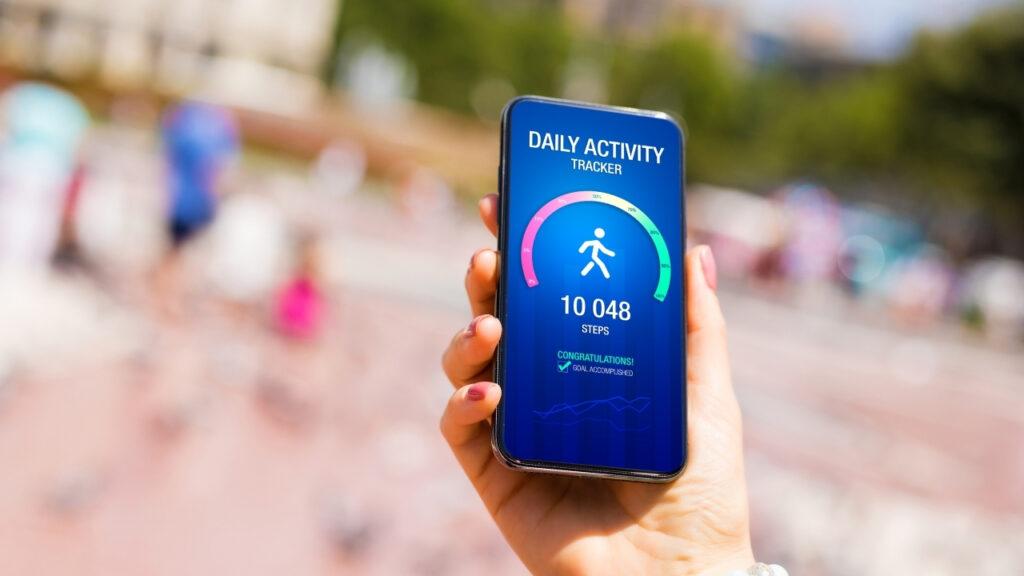
A study called “Validity of six consumer-level activity monitors for measuring steps in patients with chronic heart failure,” accessible on the Plos One website, demonstrated that consumer-level activity monitors are accurate at measuring steps in healthy individuals during normal walking speeds (≥ 3.6 km·h-1) but their accuracy decreases with lower walking speeds (≤ 3.0 km·h-1) [1].
One study from MDPI titled “Validity of Consumer Activity Monitors and an Algorithm Using Smartphone Data for Measuring Steps during Different Activity Types” reveals that some, but not all, activity monitors can measure steps with accuracy (i.e., MAPE < 3%) during walking [2].
If you are a fan of treadmill running, you may want to check our article about the best fitness trackers for treadmill running to get the device that measures the distance, step count, and running cadence most accurately.
How Accurate Are Fitness Trackers for Heart Rate Monitoring?
Fitness trackers for heart rate monitoring are not the most accurate. While sensors have improved over the years, their accuracy can still be influenced by factors like motion artifacts, device fit, skin tone, and the intensity of the training.
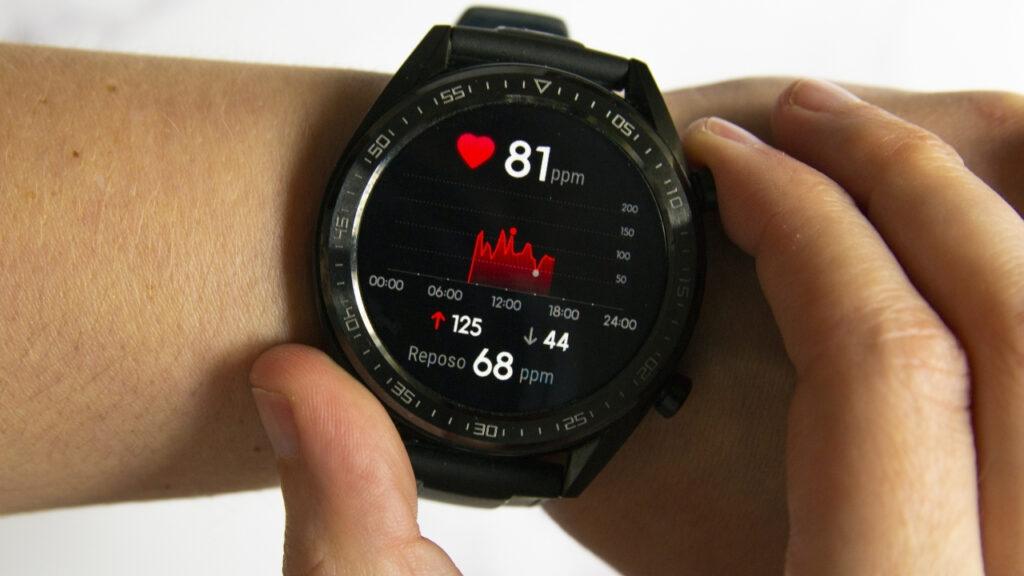
One of the studies from the Journal of Medical Internet Research titled “Accuracy of Optical Heart Rate Sensing Technology in Wearable Fitness Trackers for Young and Older Adults: Validation and Comparison Study” concluded that commonly used optical heart rate sensors, like the ones used herein, normally produce accurate heart rate readings irrespective of the age of the user [8].
A study named “Validity of wrist-worn consumer products to measure heart rate and energy expenditure,” accessible on the PubMed Central website, demonstrated that data from these devices can be useful in acquiring an estimate of heart rate for everyday activities and general exercise, but energy expenditure from these devices may be significantly over- or undervalued [9].
How Accurate Is My Garmin Watch?
Your Garmin watch is accurate for step counting. Generally speaking, Garmin watches are known for their reliability in metrics like steps taken, distance traveled, and all of the GPS-based activities.
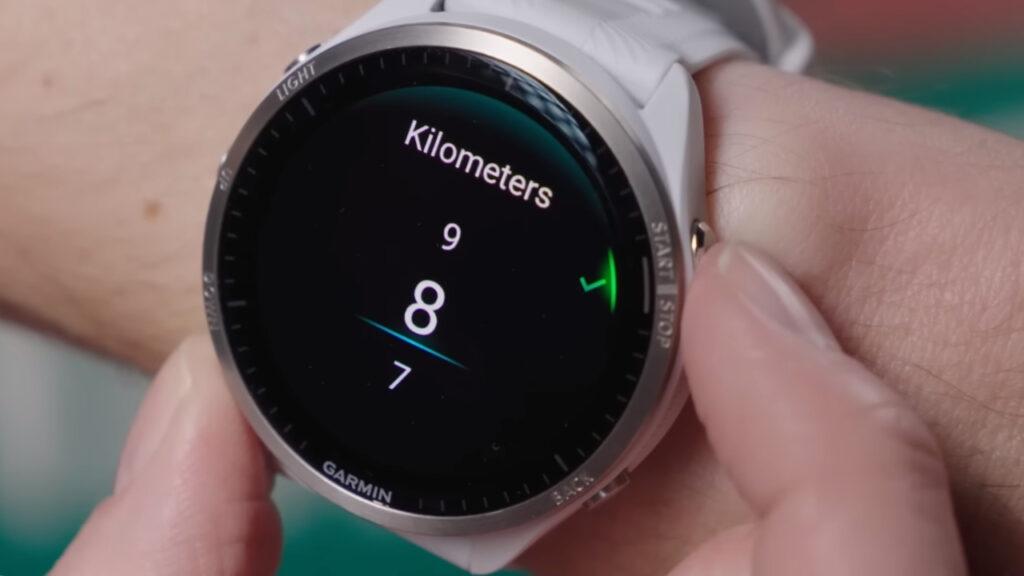
One of the studies from PubMed Central titled “Review of Validity and Reliability of Garmin Activity Trackers” demonstrates that this systematic review of Garmin activity trackers among adults reveals a higher validity of steps; just a few studies on elevation, sleep, and speed and lower validity for heart rate, energy expenditure, and distance [10].
However, foot pods are sometimes even more accurate than fitness trackers. Check our Garmin Foot Pod review article to get a better sense of what I am talking about.
How Accurate Is My Apple Watch?
The Apple watch is very accurate. The accuracy of your Apple watch can vary due to several reasons, like skin contact, motion artifacts, and, of course, which activity you are tracking.
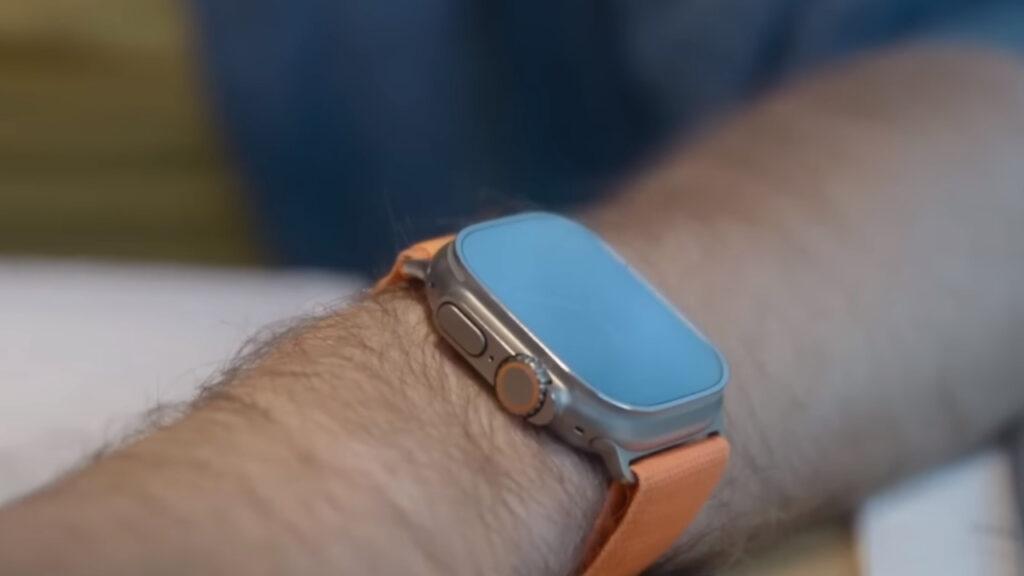
One of the studies from PubMed Central named “Tracking Steps on Apple Watch at Different Walking Speeds” concluded that there was a total error of 0.034% (1.07 steps) for the Apple Watch across all participants and all stages [11].
Another study on the Journal of Medical Internet Research website shows that in patients with cardiovascular disease, the Apple Watch measures heart rate with clinically acceptable accuracy during exercise [12].
How Accurate Is My Fitbit Device?
The Fitbit device is not that accurate. Despite the obvious limitations, FitBit fitness trackers are excellent at giving you clear insights into your health and daily activities, helping you with motivation and making informed decisions for your well-being.
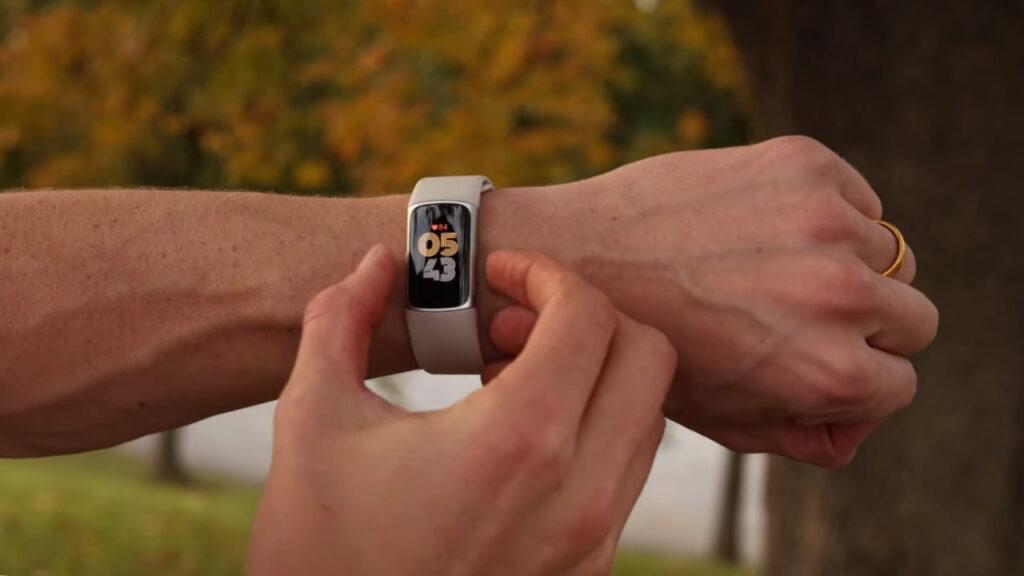
One study from PubMed Central named “Accuracy of Fitbit Devices: Systematic Review and Narrative Syntheses of Quantitative Data” says other than for measures of steps in adults with no limitations in mobility, discretion should be used when considering the use of Fitbit devices as an outcome measurement tool in research since there are a limited number of situations where the device will give you an accurate measurement [13].
How Accurate Is My Withings ScanWatch?
Withings ScanWatch is decently accurate. There are some movements where the accuracy is great, but also, in some tasks, ScanWatch underperforms.
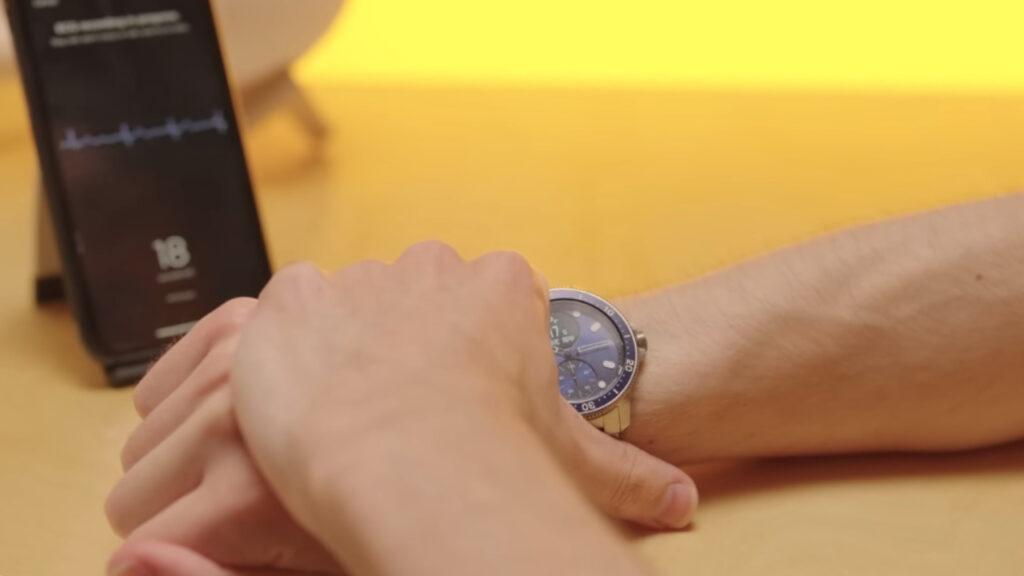
A study from PubMed Central titled “Measurement of Heart Rate Using the Withings ScanWatch Device During Free-living Activities: Validation Study” shows that the ScanWatch measures HR with a degree of accuracy that is acceptable for general consumer use; nevertheless, it would not be suitable when more accurate measurements of heart rate are required, for example in health care or clinical trials [14].
Another study on the PubMed Central website validates the Withings Activite for measuring the relative PA levels of the participants despite a consistent underestimation of an absolute number of steps compared to the other devices commonly used in research [15].
Why Is Accuracy With Fitness Trackers Crucial?
The accuracy of fitness trackers is crucial since it makes sure you get reliable data so you can make informed decisions about your fitness and health. If you have inaccurate information, that can lead potentially to false reassurances and reports, even potentially hurting your progress or causing confusion.
Moreover, having precise measurements is important for medical purposes, especially if you have some specific medical condition or if you are using a tracker for rehabilitation.
Incorrect information can misguide medical professionals, leading them to prescribe improper treatments and diagnosis. Also, accurate tracking will motivate you by giving meaningful feedback on progress, which is utterly important for keeping you long-term motivated towards your goals.
If you are a senior with medical problems looking for a simple fitness tracker that can be used without a smartphone, read this article.
What Factors Influence Fitness Trackers’ Accuracy?
Factors that influence the fitness tracker’s accuracy are sensor type and quality, algorithm efficiency, fit, and placement. Besides these, there are several more, which include wear and tear, environmental factors, and software updates.
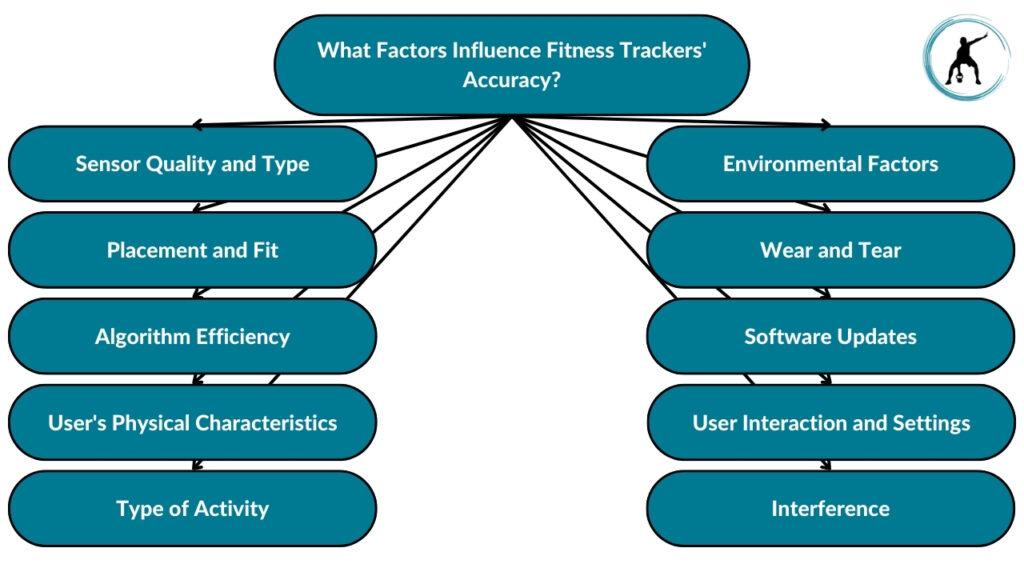
To help you get a clearer picture of which factors will influence your fitness tracker’s accuracy the most, you can read more about each factor below.
Or, you can also read our in-depth article that clarifies how fitness trackers work to get a broader picture and more thorough understanding.
Sensor Quality and Type
The accuracy of fitness trackers is mainly determined by the type of sensors that are used and their quality.
The more expensive high-quality sensors, some of which are optical heart rate monitors, accelerometers, and gyroscopes, are used to provide you with precise data on physical activities and metrics.
Also, different types of sensors excel for different metrics, like, for example, cycling or running.
Placement and Fit
Placing a fitness tracker correctly and having a proper fit is essential for accurate readings.
Having a snug and comfortable fit will make sure you have contact between the skin and the sensor, minimizing the error change that can be caused by lack of contact with the sensor or by movement. Nonetheless, having a loose fit can lead to problems with step count, sleep tracking, and heart rate.
Check our article about the best fitness trackers for small wrists in case you can’t find a device that snugly and properly fits around your arm.
Algorithm Efficiency
The algorithm’s efficiency, which your fitness tracker uses, will play a significant part in fitness tracker accuracy.
Well-designed algorithms can help you filter out noise, account for several motion patterns, and estimate metrics like sleep stages and calories burned.
User’s Physical Characteristics
All of us have our own individual physical characteristics, some of which are gender, age, weight, and height, which all impact the accuracy of wrist-worn fitness trackers.
There are some trackers that allow its users to input this information while setting up the device to personalize calculations for metrics like heart rate and calorie burn. Nevertheless, inaccurate data or even outdated data can affect the accuracy.
Type of Activity
The type of activity that is tracked can influence the accuracy of wrist-worn devices.
Additionally, different activities vary in movement intensity and patterns, which may result in sensors reading differently. There are some trackers that are great for specific activities like swimming and running, while others may struggle with certain exercises and movements.
Environmental Factors
Environmental factors such as altitude, humidity, air quality, temperature, and many more can affect the accuracy. If you are in extreme conditions, that can lead to inaccuracies in sensor reading and for metrics like calorie burn, heart rate, sleep duration, and more.
Wear and Tear
Wear and tear on wrist-worn devices will include damage, scratches, or degradation of sensors, which can impact the accuracy over time.
If physical damage occurs on sensors, it can cause impairments between the device and its sensors, leading to inconsistencies in data tracking.
Software Updates
Keeping up with the software updates from the manufacturer can help improve the accuracy by enhancing sensor algorithms, introducing innovative features, or just fixing and addressing existing bugs.
Also, updating software can lead to optimization in battery life and improve compatibility with other devices in the ecosystem.
User Interaction and Settings
User interaction and settings like starting and stopping activities, picking exercise modes, or even adjusting sensitivity settings can influence the accuracy of your dedicated fitness trackers. Having incorrect settings or user input can affect your tracker’s ability, leading to inaccuracies.
Interference
Interference can happen from external sources, like electromagnetic signals or from other electronic devices, which can help to disrupt sensor reading and can lead to poor accuracy.
In addition, interference can lead to drops and spikes in data, meaning you can have non-accurate data in the step count, distance, sleep patterns, and heart rate.
If you minimize the exposure to these sources of interference, you can improve the accuracy of tracking activities.
What Are the Best Tips to Increase Your Fitness Tracker’s Accuracy?
The best tips to increase your fitness tracker’s accuracy are to make sure you wear it in your non-dominant hand and to have a comfortable and secure fit. Besides these two obvious things, it is important to keep track of any possible new updates that might be out.
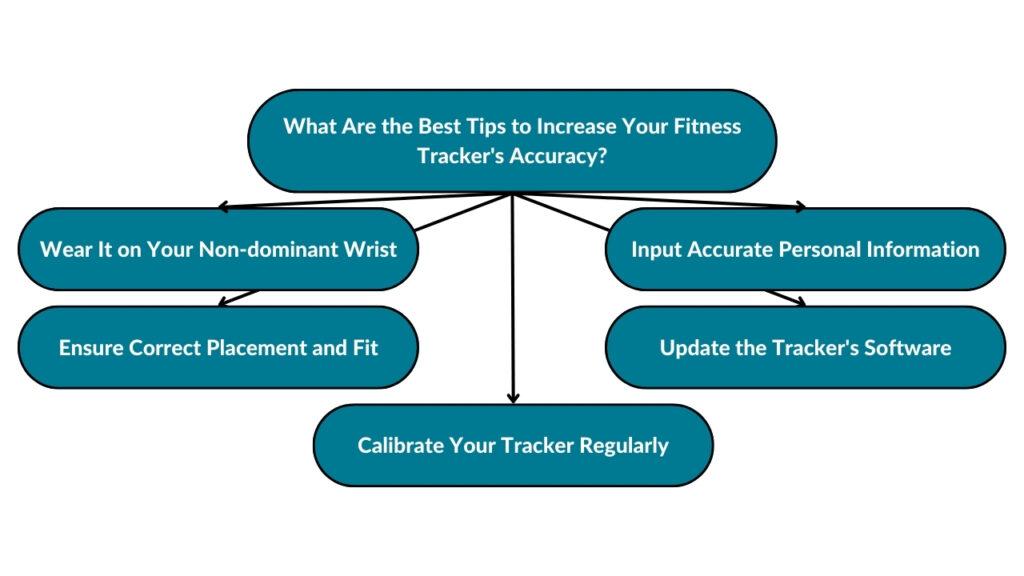
These are not the only tips that will help you increase your tracker accuracy; below, you can read about additional tips that will be extremely helpful for you.
Wear It on Your Non-dominant Wrist
Wear your fitness tracker on your non-dominant wrist to help minimize incorrect information from daily activities, for instance, typing and writing, to help avoid confusion for seniors.
Also, having your device placed like this decreases the likelihood of unintentional movements that may result in inaccurate data, giving you more reliable information about your activities.
Ensure Correct Placement and Fit
If you want to have an accurate reading, you need to make sure you have a proper fit and placement. Also, put your fitness tracker snugly on your wrist, slightly above the wrist bone, to ensure you get consistent contact with the skin.
Nonetheless, adjust the strap so you get a secure as well as comfortable fit that is going to prevent any excessive movement during activities, maximizing sensor accuracy.
Calibrate Your Tracker Regularly
Celebrating your fitness tracker regularly, especially for activities like cycling and running, still improves accuracy by customizing the setting to match your length or to go as far as bike wheel circumference.
Suppose you want to calibrate your fitness tracker properly.
In that case, you need to make sure you are following the guidelines provided by the manufacturer to make sure you have previous tracking of steps, distance, and all of the others.
Update the Tracker’s Software
It is important that you keep your fitness tracker software up to date by installing new updates whenever they come out.
Most of the time, these updates will improve any bugs, sensor algorithms, and even enhanced accuracy features. Checking for updates on a regular basis and installing them is going to make sure your devices operate at their optimum, giving you more accurate information than before.
Input Accurate Personal Information
Giving out correct personal details like weight, height, and age while setting up your fitness tracker will maximize its ability to give results of metrics like calories burned and heart rate zones as accurately as possible.
Updating this information from time to time whenever there are some changes, for example, when you lose weight, will make sure that the tracking is specifically tailored to your own body specifics.
Are Fitness Trackers Worth It?
Yes, fitness trackers are worth it. With these devices, you get a wide range of benefits that will contribute to a more healthy lifestyle and will positively impact your overall well-being.
First of all, trackers provide great insight into your everyday activities and will encourage you to stay more active by setting up goals and tracking progress.
By monitoring distance traveled, step count, and calories burned, you can have a deeper dive into your physical activity habits and make a strategic, informed decision to improve your fitness.
In addition, trackers come with some additional features like sleep tracking, guided workouts, and accurate heart rate readings, providing you with a detailed overview of your health.
All of these features can help you optimize your exercise routine and manage your stress levels more effectively. Trackers are going to improve their accuracy in years to come.
A significant factor that comes into play when estimating the accuracy of your device is how well it takes into consideration energy expenditure, which can lead to enormous margins of error when tracking your goals in general.
FAQs
Are There Any Fitness Trackers That Are Accurate?
Yes, there are fitness trackers that are accurate. Some of the best available devices on the market are Strava, Fitbit, and Garmin.
Do Doctors Recommend Fitness Trackers?
Yes, doctors recommend fitness trackers. Using a fitness tracker will not only help you track your physical activity but also provide an accurate heart rate reading, calorie burn, and sleep quality.
Is Fitbit or Garmin Better?
Fitbit is better than Garmin. Nonetheless, it is worth noting that Fitbit devices are better health tools that come with a sleek and discreet look.
Is Fitbit More Accurate Than Strava?
No, Strava is more accurate than Fitbit. The Fitbit is prone to some bugs that won’t show you the real distance compared to the Straba devices.
Are Cheap Fitness Trackers Accurate?
No, cheap fitness trackers are not accurate. Most of the cheaper trackers on the market will offer a connection with GPS that isn’t very accurate and will require you to have a phone.
What Is the Most Accurate Fitness Tracker?
The most accurate fitness tracker is the Fitbit Flex 2.
It can accurately track several different metrics like distance, steps, calories burned, and active minutes, making sure you can precisely monitor your progress. Also, the ultra-thin and versatile design gives you a seamless user experience and integration with different accessories, making it adaptable to your lifestyle.
The Fitbit Flex 2 is equipped with life-proof and water-proof features, enhancing its durability and making it suitable for use in all kinds of environments. It goes without saying that the inclusion of Smart Track helps you with automatic workout detection, and LED notification for texts and calls elevates this device even more.
Please let me know which fitness tracker you are using currently or plan to buy in the near future and how accurate it is.
Start Building Your Dream Body Today
Ready to elevate your fitness game without falling into the trap of dull, repetitive routines that just don’t deliver? Imagine sculpting your ideal physique and boosting your health, all while still enjoying life’s pleasures, like those irresistible weekend getaways and your aunt’s legendary cheesecake. With our online fitness and nutrition coaching service, you don’t have to compromise. Dive into a personalized fitness journey that blends perfectly with your lifestyle, not against it. Book your completely free discovery consultation today, and take the first step towards a transformation that doesn’t require giving up the joys of life.

“I was skeptical about online fitness coaching, but Functional Body Savage completely changed my perspective. Vanja and Radomir’s personalized approach and attention to detail have helped me achieve goals I never thought possible. I’m stronger, more confident, and grateful for their guidance.”
Emily Thompson, San Francisco, CA
Learn More About Our Online Coaching ServiceReferences:
- Vetrovsky T, Siranec M, Marencakova J, Tufano JJ, Capek V, Bunc V, Belohlavek J. Validity of six consumer-level activity monitors for measuring steps in patients with chronic heart failure. PLOS ONE. 2019;14(9):e0222569. doi:10.1371/journal.pone.0222569
- Hartung V, Sarshar M, Karle V, Shammas L, Rashid A, Roullier P, Eilers C, Mäurer M, Flachenecker P, Pfeifer K, et al. Validity of Consumer Activity Monitors and an Algorithm Using Smartphone Data for Measuring Steps during Different Activity Types. International Journal of Environmental Research and Public Health. 2020; 17(24):9314. https://doi.org/10.3390/ijerph17249314
- Germini F, Noronha N, Borg Debono V, et al. Accuracy and Acceptability of Wrist-Wearable Activity-Tracking Devices: Systematic Review of the Literature. J Med Internet Res. 2022;24(1):e30791. Published 2022 Jan 21. doi:10.2196/30791
- Klassen TD, Simpson LA, Lim SB, et al. “Stepping Up” Activity Poststroke: Ankle-Positioned Accelerometer Can Accurately Record Steps During Slow Walking. Physical Therapy. 2016 Mar;96(3):355-360. DOI: 10.2522/ptj.20140611. PMID: 26251478; PMCID: PMC4774387.
- Scott S, Matu J, Stubbs RJ, Deighton K. How well do activity monitors estimate energy expenditure? A systematic review and meta-analysis of the validity of current technologies. Br J Sports Med. 2020;54(6). BMJ Publishing Group. [Accessed 2020-03-02]. Available from: https://eprints.whiterose.ac.uk/135954/
- Passler S, Bohrer J, Blöchinger L, Senner V. Validity of Wrist-Worn Activity Trackers for Estimating VO2max and Energy Expenditure. Int J Environ Res Public Health. 2019;16(17):3037. Published 2019 Aug 22. doi:10.3390/ijerph16173037
- Xie J, Wen D, Liang L, Jia Y, Gao L, Lei J Evaluating the Validity of Current Mainstream Wearable Devices in Fitness Tracking Under Various Physical Activities: Comparative Study JMIR Mhealth Uhealth 2018;6(4):e94 URL: https://mhealth.jmir.org/2018/4/e94 DOI: 10.2196/mhealth.9754
- Chow H, Yang C Accuracy of Optical Heart Rate Sensing Technology in Wearable Fitness Trackers for Young and Older Adults: Validation and Comparison Study JMIR Mhealth Uhealth 2020;8(4):e14707 URL: https://mhealth.jmir.org/2020/4/e14707 DOI: 10.2196/14707
- Thiebaud RS, Funk MD, Patton JC, et al. Validity of wrist-worn consumer products to measure heart rate and energy expenditure. Digit Health. 2018;4:2055207618770322. Published 2018 Apr 13. doi:10.1177/2055207618770322
- Evenson KR, Spade CL. Review of Validity and Reliability of Garmin Activity Trackers. J Meas Phys Behav. 2020;3(2):170-185. doi:10.1123/jmpb.2019-0035
- Veerabhadrappa P, Moran MD, Renninger MD, Rhudy MB, Dreisbach SB, Gift KM. Tracking Steps on Apple Watch at Different Walking Speeds. J Gen Intern Med. 2018;33(6):795-796. doi:10.1007/s11606-018-4332-y
- Falter M, Budts W, Goetschalckx K, Cornelissen V, Buys R Accuracy of Apple Watch Measurements for Heart Rate and Energy Expenditure in Patients With Cardiovascular Disease: Cross-Sectional Study JMIR Mhealth Uhealth 2019;7(3):e11889 URL: https://mhealth.jmir.org/2019/3/e11889 DOI: 10.2196/11889
- Feehan LM, Geldman J, Sayre EC, et al. Accuracy of Fitbit Devices: Systematic Review and Narrative Syntheses of Quantitative Data. JMIR Mhealth Uhealth. 2018;6(8):e10527. Published 2018 Aug 9. doi:10.2196/10527
- Giggins OM, Doyle J, Smith S, Crabtree DR, Fraser M. Measurement of Heart Rate Using the Withings ScanWatch Device During Free-living Activities: Validation Study. JMIR Form Res. 2022;6(9):e34280. Published 2022 Sep 1. doi:10.2196/34280
- Au-Yeung WM, Kaye JA, Beattie Z. Step Count Standardization: Validation of Step Counts from the Withings Activite using PiezoRxD and wGT3X-BT. Annu Int Conf IEEE Eng Med Biol Soc. 2020;2020:4608-4611. doi:10.1109/EMBC44109.2020.9176511





